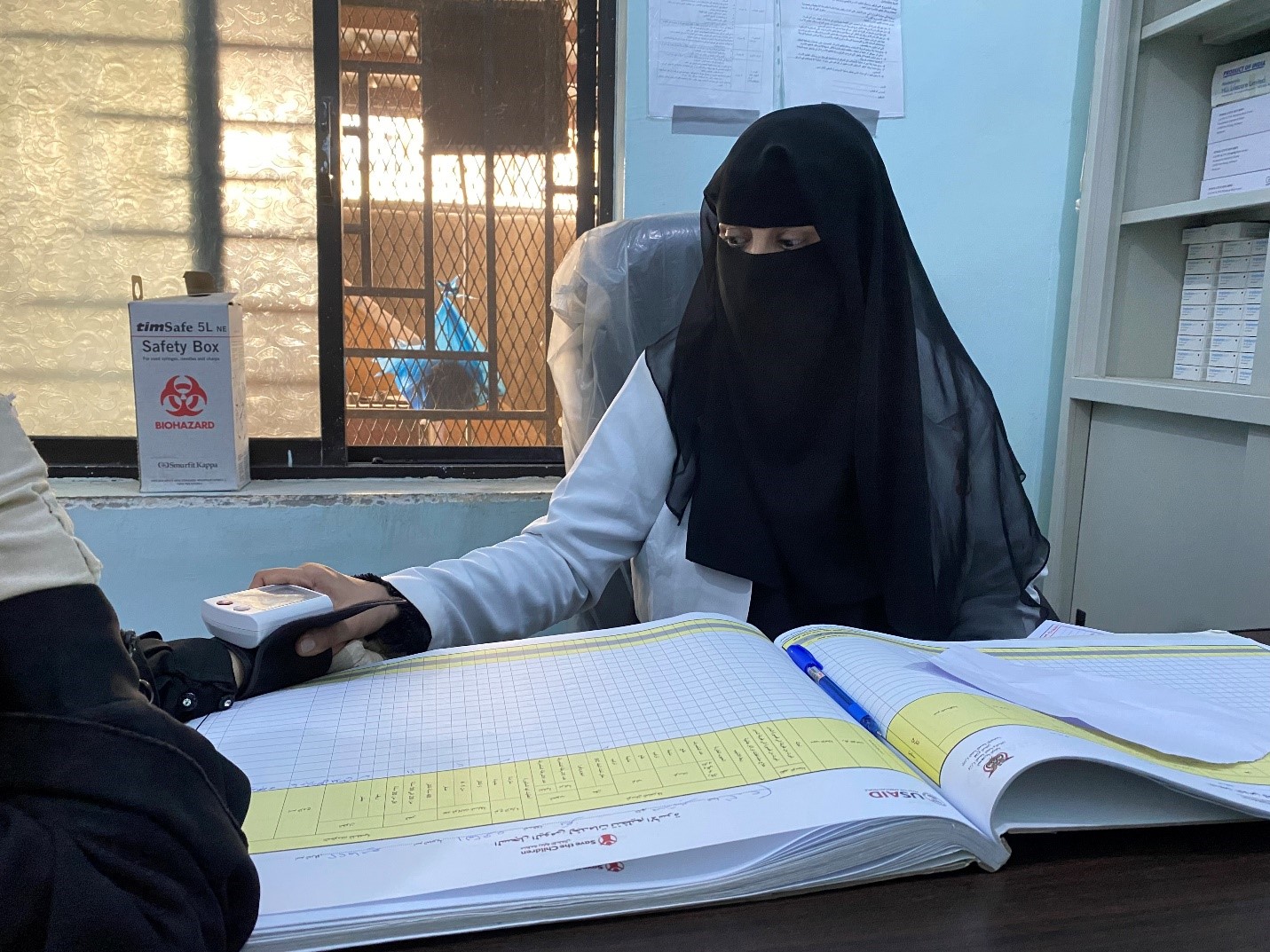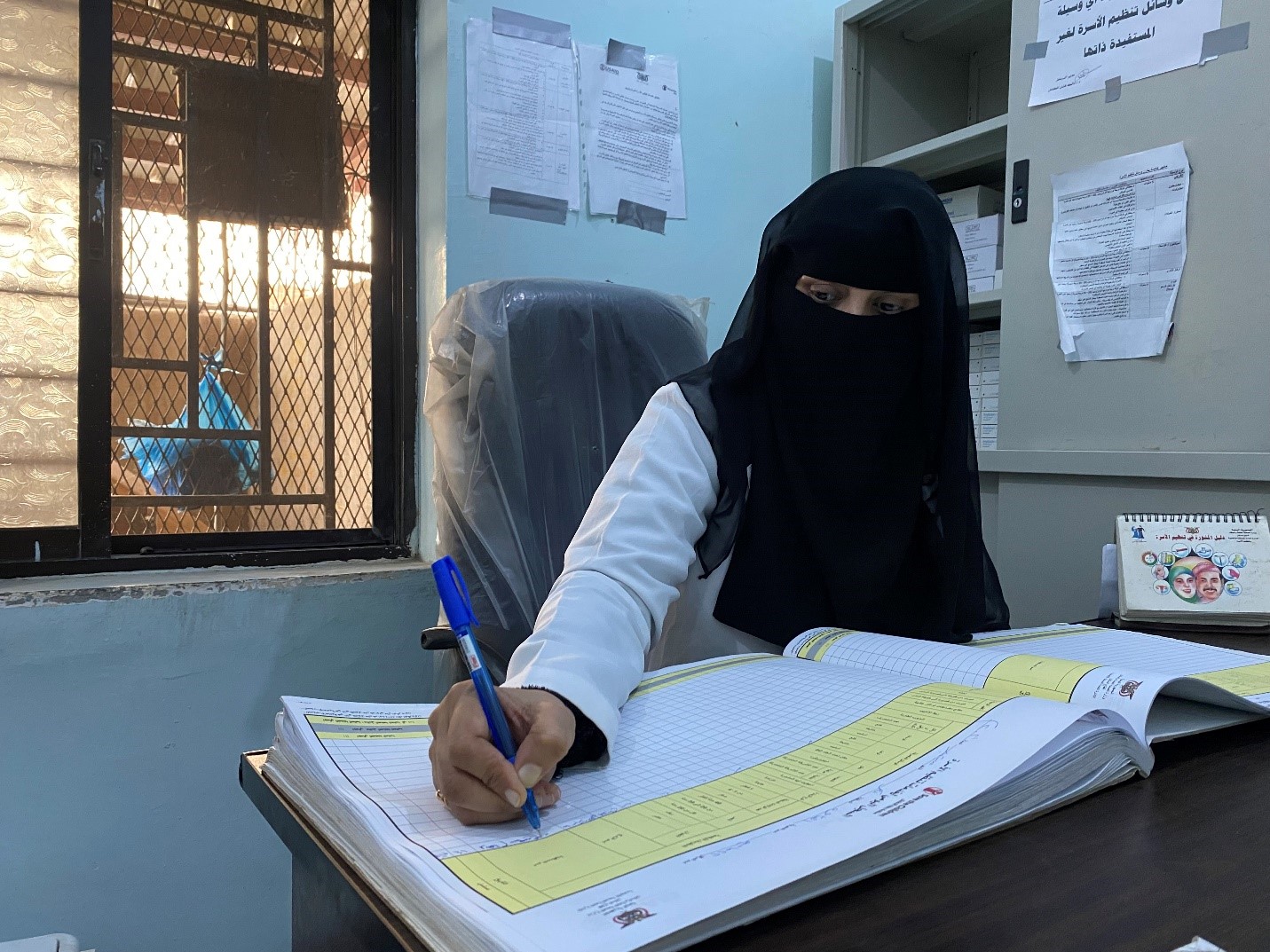Bushra is now the sole breadwinner for her daughter. “As prices rose a lot this year, it was hard for me to buy school items, such as the uniform, notebooks, and a school bag for my daughter,” she says. Bushra works as a midwife. Like most of Yemen’s health facilities, Bushra’s workplace lack the minimum needed supplies and resources. Moreover, staff don’t receive their payment on regular basis.
Given women’s roles as primary caregivers in their households, the ripple effects of increased health risks become even more significant. The high potential of contracting COVID-19 through the daily exposure to patients and a lack of adequate personal protective equipment (PPE) put women health workers’ safety and wellbeing at risk. Moreover, the fear of causing negative health outcomes and putting their families at risk overwhelm women health workers.
“After the spread of coronavirus, my daughter has another fear of losing me too,” says Bushra. “As a midwife, I help women access a lifesaving service and I can’t stop doing it.”
Speaking about the difficulties women healthcare workers face, Bushra says: “I’m always exposed to the risk of contracting contagious diseases. Our facility didn’t have the basic needs to protect us or our patients. I used to work without personal protective equipment. I was often afraid of transmitting any infection to my daughter, so I avoid hugging her when I come back home. Yet she always hugs me and tells me: either we live or die together.”
To ensure the safety and wellbeing of healthcare workers, CARE, with Abbott Fund, provides essential personal protective equipment (PPEs) to the frontline workers and trains them on COVID-19 prevention measures. The intervention also supports 10 health services to increase access to safe water, hygiene, and sanitation (WASH) services within these facilities.
“Now we have the essential PPEs and enough knowledge on how to protect ourselves and others,” says Bushra. “PPEs are a solid line of defense for healthcare workers against COVID and other contagious diseases.”
Through the intervention, Bushra received monthly cash incentives for four months. She used the money to buy her daughter school items and other basics for her family. “I feel safe and happy hugging my daughter now. I hope this project continues so we can keep saving lives and protecting ourselves and loved ones as well,” Bushra concludes.



